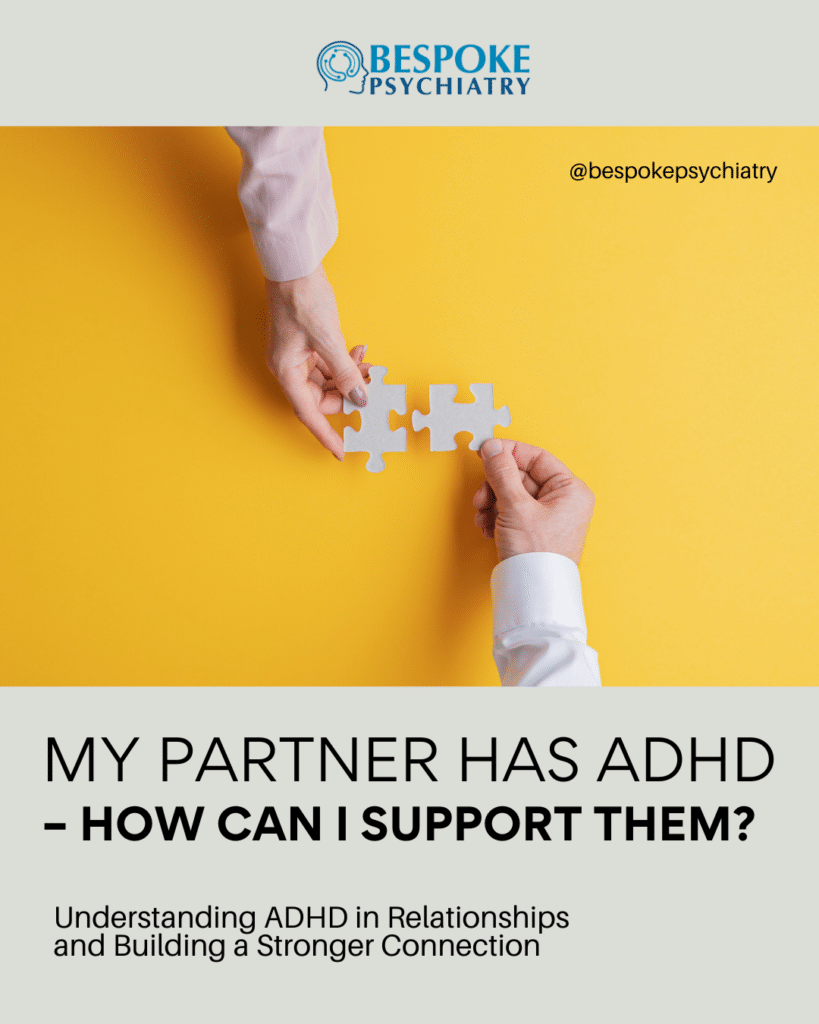
Practical Relationship Tips for Navigating ADHD with Compassion and Understanding
If you’ve been asking yourself, “How can I support my partner with ADHD?”—you’re already on the right track. Loving someone with Attention-Deficit/Hyperactivity Disorder comes with a unique blend of challenges and strengths, and when approached with patience, empathy, and education, it can lead to a deeply rewarding relationship.
ADHD, a neurodevelopmental condition, impacts more than just focus. It can affect time management, emotional regulation, impulse control, memory, and even how someone engages in conversations. But it’s important to remember: your partner’s ADHD doesn’t define your relationship—it simply shapes how you both navigate it together.
Understanding ADHD in Relationships
One of the first and most powerful things you can do is learn about ADHD. When you understand that behaviors like forgetfulness, zoning out during conversations, or impulsivity are symptoms—not signs of carelessness or disrespect—it changes how you respond. Reading books such as “Driven to Distraction” or “ADHD 2.0,” listening to ADHD-focused podcasts, or even watching short educational videos together can spark valuable conversations and deepen your empathy.
Communicate With Clarity and Compassion
Communication is often one of the first areas affected by ADHD. You might find your partner interrupting, struggling to follow conversations, or even forgetting what you talked about. These moments can be frustrating, but they’re rarely intentional.
Instead of defaulting to blame, focus on expressing your needs clearly and kindly. Saying something like, “I feel a little unheard—can we pause for a minute and try again?” is often more effective than “You never listen to me.” Finding mutually helpful ways to communicate—like texting reminders or having a weekly check-in—can also reduce misunderstandings and build trust.
Build Supportive, Not Controlling, Structures
ADHD thrives in chaos, and structure can offer calm—but only if it’s created collaboratively. Simple routines, shared calendars, or visual to-do lists can help both partners feel more organized and less overwhelmed. Instead of taking over or becoming a “parent” figure in the relationship, try offering support in ways that preserve your partner’s autonomy.
For instance, rather than saying, “You’ll forget unless I remind you,” try, “Would a reminder be helpful for both of us?” This shift keeps your partnership balanced and avoids creating a dynamic where one person feels overly responsible for the other.
Recognize and Celebrate Their Strengths
While ADHD presents certain challenges, it also brings incredible gifts. Many people with ADHD are creative thinkers, energetic problem-solvers, and deeply empathetic partners. Instead of focusing solely on what’s difficult, make space to celebrate what makes your partner special.
Remind them, and yourself, that their brain isn’t “broken”—it just works differently. Affirmations like “I love how you think outside the box” or “You always bring a spark to our life” can go a long way in fostering confidence and connection.
Navigate Emotional Moments Gently
Emotional regulation can be a major struggle for people with ADHD. Your partner might experience frustration more intensely, or react strongly to perceived criticism. In tough moments, your calm presence and validation can help ground the situation. Practice co-regulation—taking deep breaths together, pausing before responding, and acknowledging feelings without judgment.
You might say, “I can see you’re overwhelmed—do you want space or should we take a moment together?” These kinds of responses can help defuse tension and create emotional safety.
Encourage Professional Support
Treatment for ADHD can be transformative. Therapy, coaching, medication, or a combination of all three can help your partner feel more in control of their life—and more present in the relationship. Encourage them to explore these options without pressure or shame. Couples counseling, especially with someone familiar with ADHD dynamics, can also provide a supportive space to grow together.
If you think your loved one would benefit from speaking with a mental health provider, we’re here to help. At Bespoke Psychiatry, our clinicians offer compassionate, personalized care to help individuals and couples navigate ADHD and related mental health challenges. Reach out to us today to learn more about how we can support your journey together.
Take Care of Yourself Too
Supporting a partner with ADHD doesn’t mean ignoring your own needs. Compassion fatigue is real, and it’s okay to feel frustrated or burnt out at times. Make sure you have your own emotional outlets—friends, hobbies, therapy—so you can recharge and show up in the relationship without losing yourself.
Check in with yourself regularly. Ask, “What do I need today?” or “Am I setting healthy boundaries?” A strong relationship requires two whole people, not one constantly sacrificing for the other.
A Loving, Supportive Partnership Is Possible
Living with ADHD isn’t easy—and neither is loving someone with it—but it’s absolutely possible to create a relationship filled with connection, balance, and joy. When you support your partner with empathy instead of judgment, and work as a team to manage ADHD’s impact, your bond can grow even stronger.
Remember, ADHD doesn’t define your partner—and it certainly doesn’t define your relationship. What matters most is how you show up for each other, learn together, and keep choosing connection over frustration, again and again. For more information or to schedule a consultation, visit Bespoke Psychiatry’s website or click HERE to become a new patient



